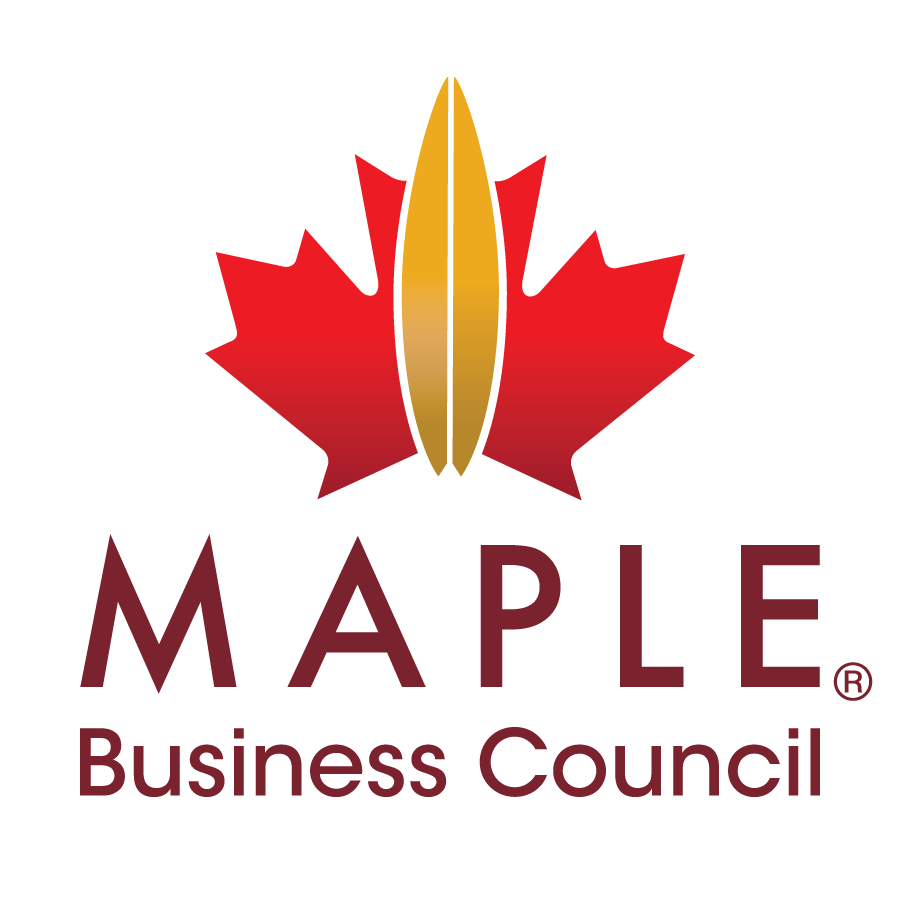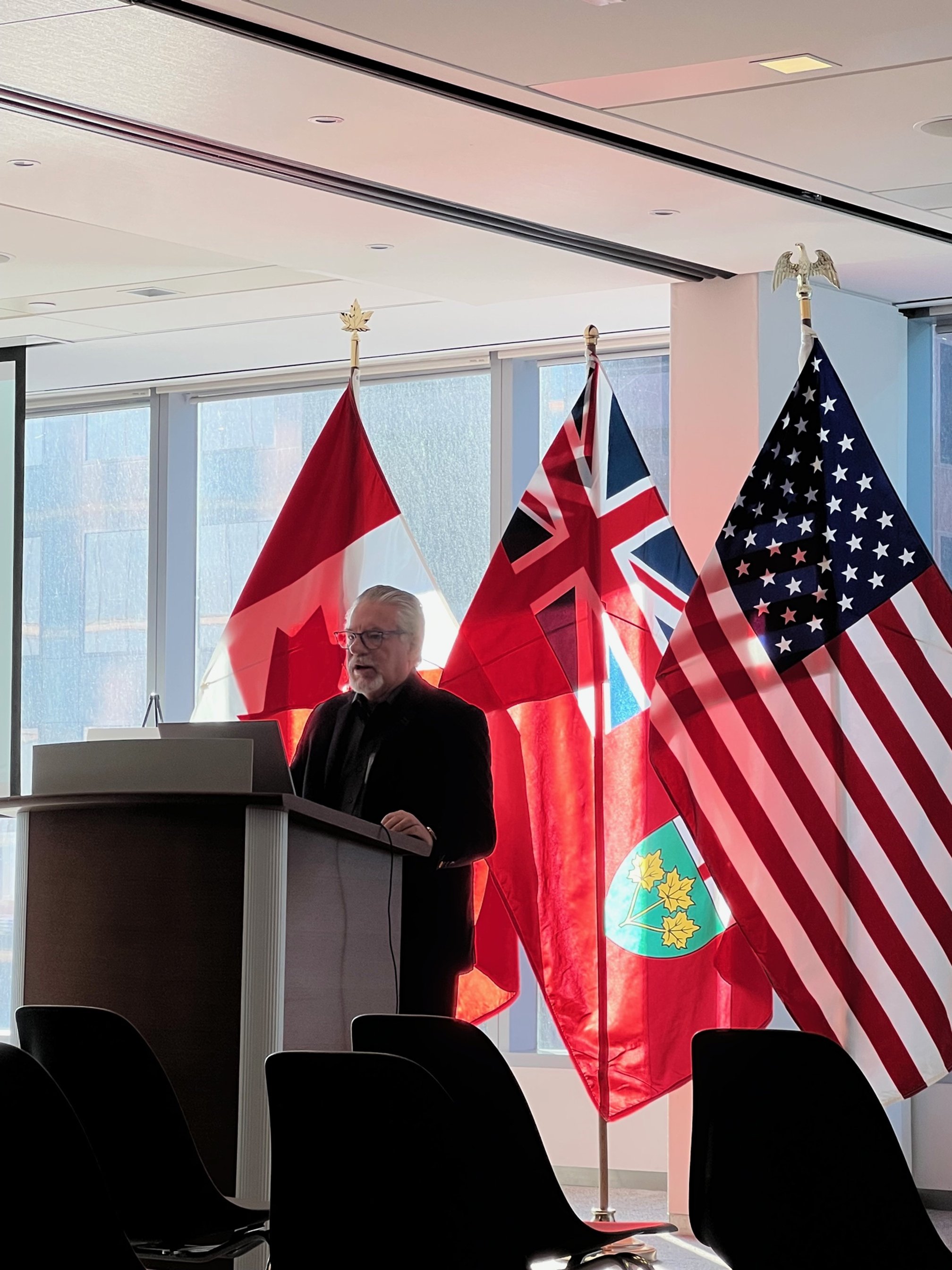This is my last issue as your editor and on this occasion I am sharing some reflections as co-founder and the outgoing President of MAPLE® Business Council. Thank you very much for your participation and support over the years. I am grateful to everyone who has contributed in so many ways to the growth and strength of our community.
We are delighted to contribute to your summer reading with perspectives on the commercial real estate sector. Sharing insights this month is Gene Garcia, Principal, Tax Compliance and Consulting Services at audit, tax and consulting firm (and valued MAPLE member organization), RSM US LLP based in their Houston, Texas office. While CRE owners and funds face multiple headwinds, from high interest rates to rising insurance costs, many industry players see an opportunity in the second half of 2024 to make investments. A historic level of dry powder remains on reserve as investors wait for creative strategies to provide risk-adjusted returns; understanding capital optimization through diversification will be key to success for the sector.
With the summer season approaching, Air Canada is ramping up its flight offerings, providing travellers with more opportunities to explore destinations across Europe, Asia and North America. The airline’s strategic moves aim to capture additional passenger traffic, enhance connectivity, and balance out traditional seasonal fluctuations in travel demand.
We begin our issue with a comprehensive look at the North American hydrogen market. Janet Howard, a Toronto-based partner at Fasken Martineau DuMoulin LLP, Regional Leader of Global Energy and Climate Group, Ontario at Fasken and Co-Founder of the firm's Hydrogen Energy Advisory Team, explores the demand side of the North American hydrogen market.
Approaches used in the United States compared to those in Canada to incentivize the development of the hydrogen market are often compared with reference to carrots and sticks. With over 80 hydrogen production projects in various stages of development across Canada, and U.S. clean hydrogen production scaling significantly, a lot more hydrogen will be coming soon to a pipe or pump near you. As a result, the time is now to shift the focus from production to the next steps necessary to develop the demand side of the North American market. Who is going to buy all of this hydrogen?
And when it comes to getting goods to and throughout Canada, there is no organization more fully invested in getting this right than Purolator International. Paul Tessy, Senior Vice President, puts the role of logistics companies in a global context in his article. Consider all of the whitewaters that getting goods into a consumer's or customer's hands must navigate. Supply chains are being moved out of China. The explosion of e-commerce. The rise of machine learning. Fierce competition for skilled workers. Evolving consumer expectations. The certifiable march toward corporate sustainability. This decade, logistics companies have faced the need to contend with an influx of change. In his article, Paul Tessy reviews evolving industry conditions to talk about what is in store for 2024.
It is my pleasure to share some of the highlights of 2023 for our Canada-U.S. community. It was a privilege for our MAPLE team to engage with organizations across sectors and markets throughout the year many of whom we have since welcomed as new members. Networking and storytelling are the building blocks of MAPLE and events, both our own and partner programs, our MOMENTUM e-publication and our Conversations video series all played important parts in connecting people and ideas together.
As we now lean into a brand new year, our members are working in over 25 sectors and are based in over 25 markets across Canada and the United States supported by 5 chapters each led by an Executive Director.
Roland DGA Canada is the Canadian sales arm for Irvine, California-based Roland DGA Corporation, which oversees North American sales, marketing, and distribution for parent company Roland DG Corporation headquartered in Hamamatsu, Japan.
Created in 1995, Roland DGA Canada employs five staff who are responsible for sales and distribution to approximately 50 resellers throughout Canada. We recently spoke with Roland DGA Canada’s National Sales Manager, Don Ross, about the strong working relationship between his office and the U.S. office, Roland DGA Canada’s approach to core markets, and his view of the impact current economic trends are having on the Canadian sign and graphics market.
The rising call from consumers and business partners is increasingly clear: it is not only the right thing to do, but it is in fact the responsibility of companies to prioritize sustainable business practices.
When it comes to the shipping industry this responsibility takes on heightened importance. In fact, according to the World Economic Forum, if the shipping industry were a country, it would be considered the sixth largest emitter of greenhouse gas emissions in the world.
The life sciences industry has long been a major player in North America, with Ontario, Canada being at the forefront. With a rich history of medical breakthroughs, including insulin, stem cells, and remote robotic surgery, Ontario's life sciences sector is Canada’s largest, employing over 70,000 people and generating over $65.2 billion in revenues from 1,900 firms. Over the past two and a half years alone, global biomanufacturers have invested nearly $3 billion in the sector and in diverse regions across the province, from Windsor to Hamilton and Ottawa to Thunder Bay, which underlines Ontario’s appeal as a destination for life sciences.
Employee benefits are essential for attracting and retaining top talent. But with the ever-changing landscape of benefits, it can be hard to keep up. What’s more, employees are becoming increasingly demanding when it comes to their benefits. They want more than health insurance and a retirement plan. They want perks that make their lives easier and work-life balance programs that give them time to enjoy their personal lives. As an employer, it’s important to stay ahead of the curve when it comes to employee benefits. Not only will it help you attract and retain the best talent, but it will also improve morale and increase productivity in the workplace. Here are five easy wins for your employee benefits program that will help you stay ahead of the competition.
The “Timbit” donut holes were introduced in Canada in 1976 by beloved Canadian coffee house and restaurant chain Tim Hortons. TIMBITS® donut holes are widely sold in Tim Hortons locations throughout Canada and have become an icon of Canadian culture. Just last year, Tim Hortons teamed up with Canadian-born superstar Justin Bieber to release three new TIMBITS® flavors, which they called “Timbiebs Timbits.”
But what if Tim Hortons planned to keep TIMBITS a Canadian secret by not launching in the United States, and a third-party began selling TIMBITS-branded donut holes in California (where even today there are no Tim Hortons locations)? You may ask yourself if this trademark scenario is even possible, and if so, what if anything could Tim Hortons do about it?
With the predicted increase in precipitation and storm events over the coming decades, the issue of how to effectively manage stormwater is becoming more pressing than ever before.
From the water we drink, to the snow that we play in, and the tennis courts we socialize in, all are affected by permeable paving. Groundwater is our source of drinking water, and precipitation can carry harmful chemicals - once those chemicals fall onto the ground and pavement, without a proper filtration system which is included in a permeable solution, those chemicals go back into the environment, including the air and the land. Permeable paving systems help safeguard our health by safely disposing of stormwater runoff.
Over the last several years, businesses of all sizes have made diversity, equity, and inclusion a bigger priority—and with good reason. DEI initiatives allow companies to create a space in which underrepresented or marginalized people have fair access to resources and opportunities and feel welcomed and accepted within that space. Let's consider the internal and external benefits that are motivating so many companies to make progress.
Since its inception over 50 years ago, the 1.8 million square foot California Market Center complex has stood as a cornerstone of Los Angeles’ wholesale apparel industry. Drawing manufacturers, distributors, buyers, and industry events from across the region, CMC has a long and respected history as the West Coast’s industry hub.
Today, that promise still holds true as CMC is at the epicenter of Downtown Los Angeles’ renaissance. Located in the heart of the Fashion District, CMC boasts large floor plates and an airy indoor-outdoor design unlike anything else in the region.
The global pandemic continues to drive uncertainty throughout supply chains, resulting in trade restrictions, supply shortages, logistics capacity constraints, and fluctuating demand for companies. These trends will continue to plague manufacturers and retailers as they struggle to secure raw materials, transport finished goods to customers and consumers, and manage unpredictability in the marketplace. The ability to leverage logistics partners that can deliver your time critical shipments will be an important element to combat that uncertainty.
Former US Secretary of State George Shultz once drew a distinction between “problems you can solve and problems you can only work at.”These two types of problems have names: they are tame or wicked. Wicked problems are messy, confusing, unstable, ill-structured, and ambiguous.The Maple League of Universities was originally created to solve a wicked problem. The wicked problem was a lack of awareness or understanding of quality undergraduate education in Canada.
While businesses had already been exploring the idea of diversifying manufacturing operations away from China in recent years, the global pandemic has put pressure on companies to speed up the process. In recent weeks, similar closures and supply chain disruption have emerged out of China and Vietnam—the latter of which has captured about half of the capital flight from China due to the U.S.-China trade war—and have served as a reminder that global supply chains have not yet reached a true post-pandemic “new normal.”
What manufacturing destination alternatives to China exist? There are a multitude of manufacturing centers across the globe; yet, for U.S. businesses, their northern neighbor might just be their best bet.
The Canadian Olympic Foundation reminds us that 2020 is the 10th anniversary of a true milestone in Canadian Olympic history, the 2010 Winter Games in Vancouver. Emmalee Nother, Head of Communications, brings us back to those games and previews some of what is in store in February to mark their 10th anniversary.


















